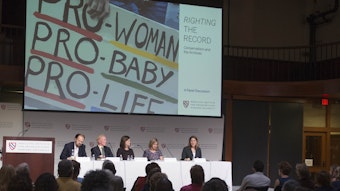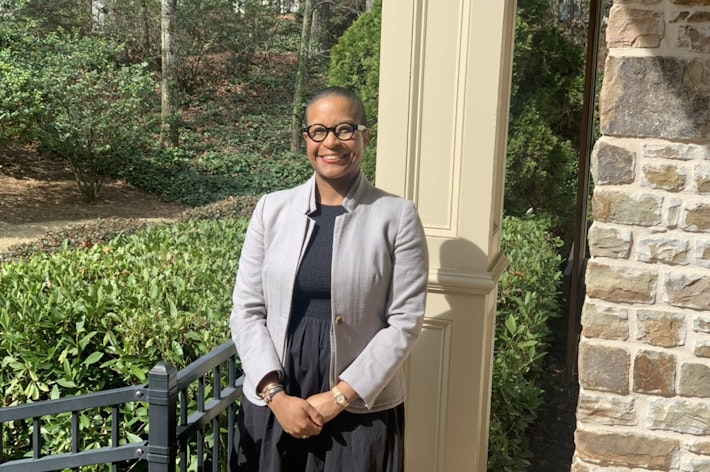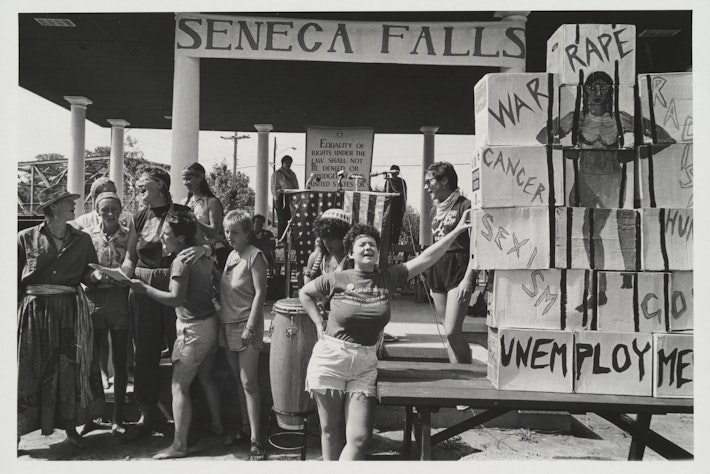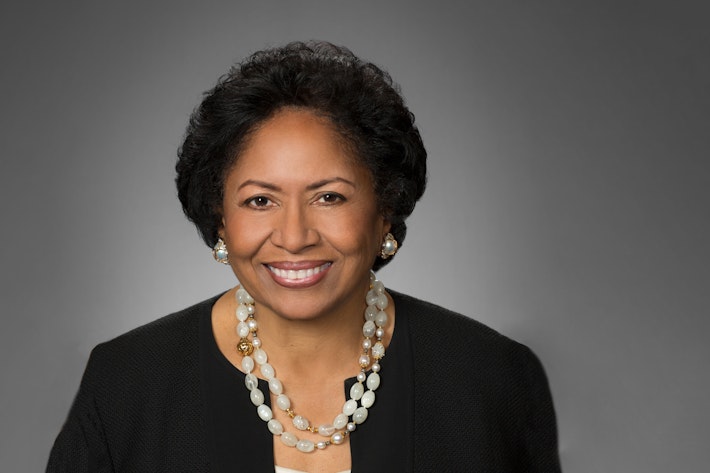Archiving a Conservative Legacy
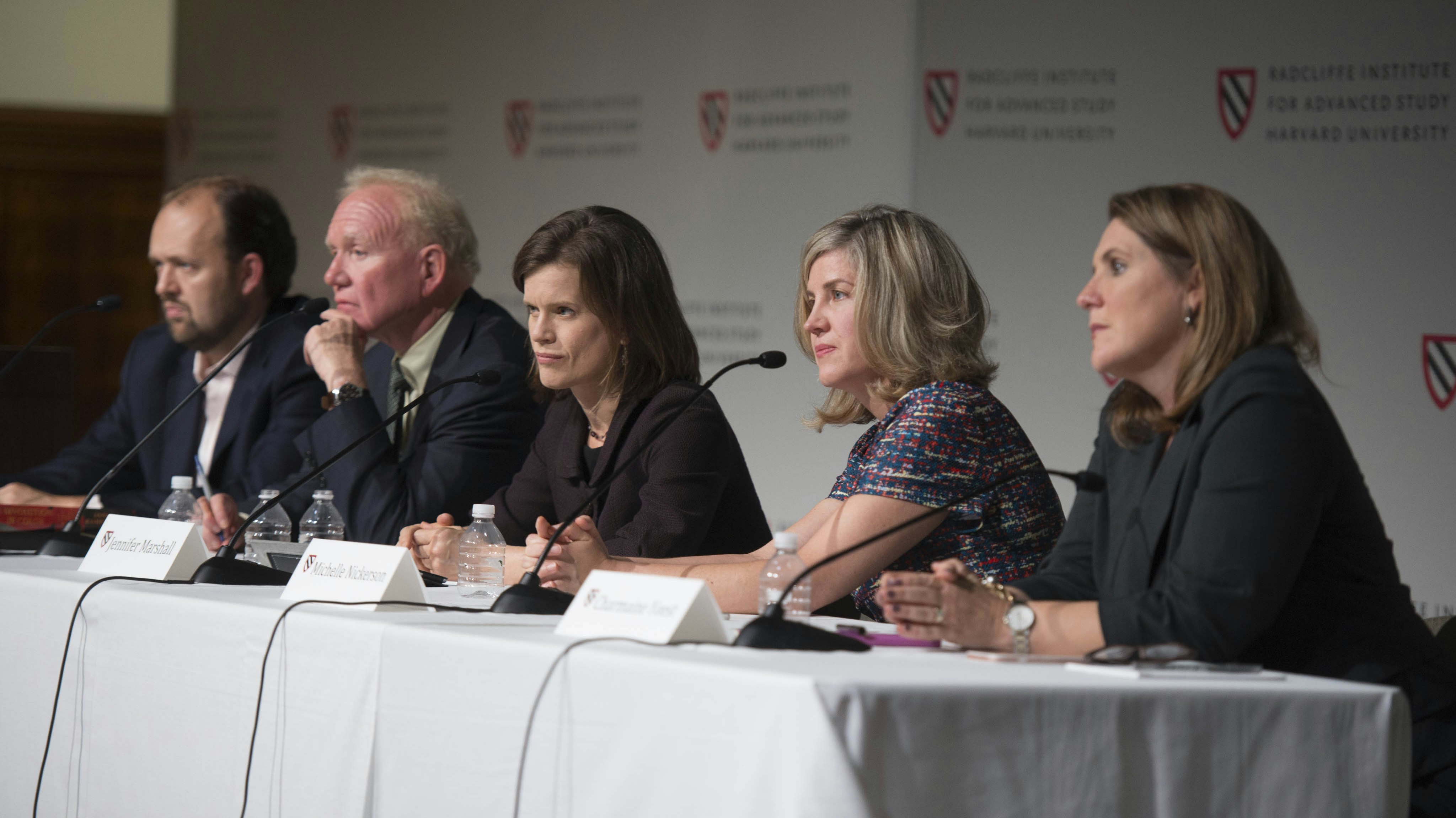
A Schlesinger Library event considered ways to counter archival scarcity of right-leaning voices.
“It is our duty to safeguard as complete and multisided a record of the history of American women as we are able to assemble,” said Jane Kamensky, the Carl and Lily Pforzheimer Foundation Director of the Schlesinger Library and a professor of history at Harvard, as she introduced a panel discussion with noted scholars of the new right and conservative activists, “Righting the Record: Conservatism and the Archives.”
The Schlesinger Library maintains one of the world’s foremost collections of manuscripts and rare printed materials from leading individuals and organizations in the political and social history of American women, including the papers of Susan B. Anthony, Betty Friedan, Pauli Murray, and Harriet Beecher Stowe.
At their core, the Schlesinger’s materials center on the long history of women’s rights and feminism. At present, however, only a small portion of the collection documents the work of women in grassroots conservatism following World War II. Indeed, the history of conservative thought and activism regarding family values—marriage, gender roles, sexuality—remains under-documented well beyond the Schlesinger’s vaults, whether compared with progressive social activism or with conservative movements led by men and involving geopolitics.
The library’s holdings already include several conservative collections, such as the papers of Anna Chen Chennault, a successful businesswoman and an active supporter of the Republican Party who campaigned for Richard Nixon. The Schlesinger also acquired the papers of Mildred Jefferson, the first African American woman to graduate from Harvard Medical School, who later became a popular speaker for the right-to-life movement. But the library is committed to expanding these holdings to provide a wider range of records and resources for the future.
“We’re at a generational turning point,” Kamensky said, “where records of the heated family-values contests of the post-WWII era will either make their way into institutions or suffer the fate of most of the records of most of humanity over most of history, which is to be lost.
“It’s our job to think about the future as much as the present and the past, to imagine how researchers a century from now will need to understand our moment and how we can help anticipate that important work.”
The panel was dedicated to understanding current imbalances and to building new relations of trust that will redress them. The moderator, Ross Douthat ’02, a conservative columnist for the New York Times, pointed to ideological “self-segregation” at universities as part of the problem, arguing that it has left those inside academia relatively uninformed about political and religious conservatism. Similarly, conservatives have been quick to dismiss the ideas and values of the academy, which they believe privileges liberalism and secularism.
The paucity of publicly available documentary information about conservative women makes it challenging to conduct research, said Michelle Nickerson, an associate professor of history at Loyola University Chicago. In her book Mothers of Conservatism: Women and the Postwar Right (Princeton University Press, 2012), Nickerson documented activism among Los Angeles housewives during the 1950s. But few repositories could provide the necessary materials. “When I first talked to archivists, they told me they really didn’t have anything for me,” she said.
By sifting through broader collections, Nickerson teased out the names of relevant women and then tracked them down—sometimes by cold-calling—to conduct interviews and seek access to papers and memorabilia many had saved in their homes. It was a painstaking effort, she said.
Historical archives are the first stop for scholars and the most enduring way to preserve an intellectual legacy, Nickerson said, arguing that conservatives would do well to consider handing over their collections to repositories like the Schlesinger. Such a stable, sensitive institutional context ensures that ideas and work will be well preserved and accessible for posterity.
“Take conservatism on its own terms,” Jennifer Marshall, a vice president of the Heritage Foundation, the conservative Washington, DC, think tank, urged archivists. “Investigate and present its stated principles, rationale, and aims, [and] discern its internal coherence rather than imposing extrinsic theories on it.” She added that libraries should work to identify “authentic representatives and emblematic expressions” of conservatism.
“Trust—that’s a real issue,” said Charmaine Yoest, a pioneering antiabortion activist and senior fellow at the nonprofit American Values. Misunderstanding and fear of women on the other side is damaging and all too pervasive. “What happens when we throw around terms like ‘internalized misogyny’ is that those of us who might hold different positions from the prevailing ideology become a caricature,” Yoest said. “And that’s not productive.”
Establishing a personal rapport with leading movement figures is key to gaining access to important materials not in public hands, said the historian Donald Critchlow, director of the Center for Political Thought and Leadership at Arizona State University.
While researching his book Phyllis Schlafly and Grassroots Conservatism: A Woman’s Crusade (Princeton University Press, 2005), Critchlow said he first had to persuade the late activist that his intentions were honorable. Schlafly AM ’45 (1924–2016) kept an extensive archive in her attic but was wary of allowing scholars to go through it for fear the material might be used against her. (The Schlafly archive remains in private hands.)
Critchlow’s advice for bringing together conservative thinkers and archives seeking to diversify their holdings: “Convince people that they’ll have a legacy beyond their own activist lifetimes.”
Christina Pazzanese is a freelance writer who also contributes to the Harvard Gazette.
